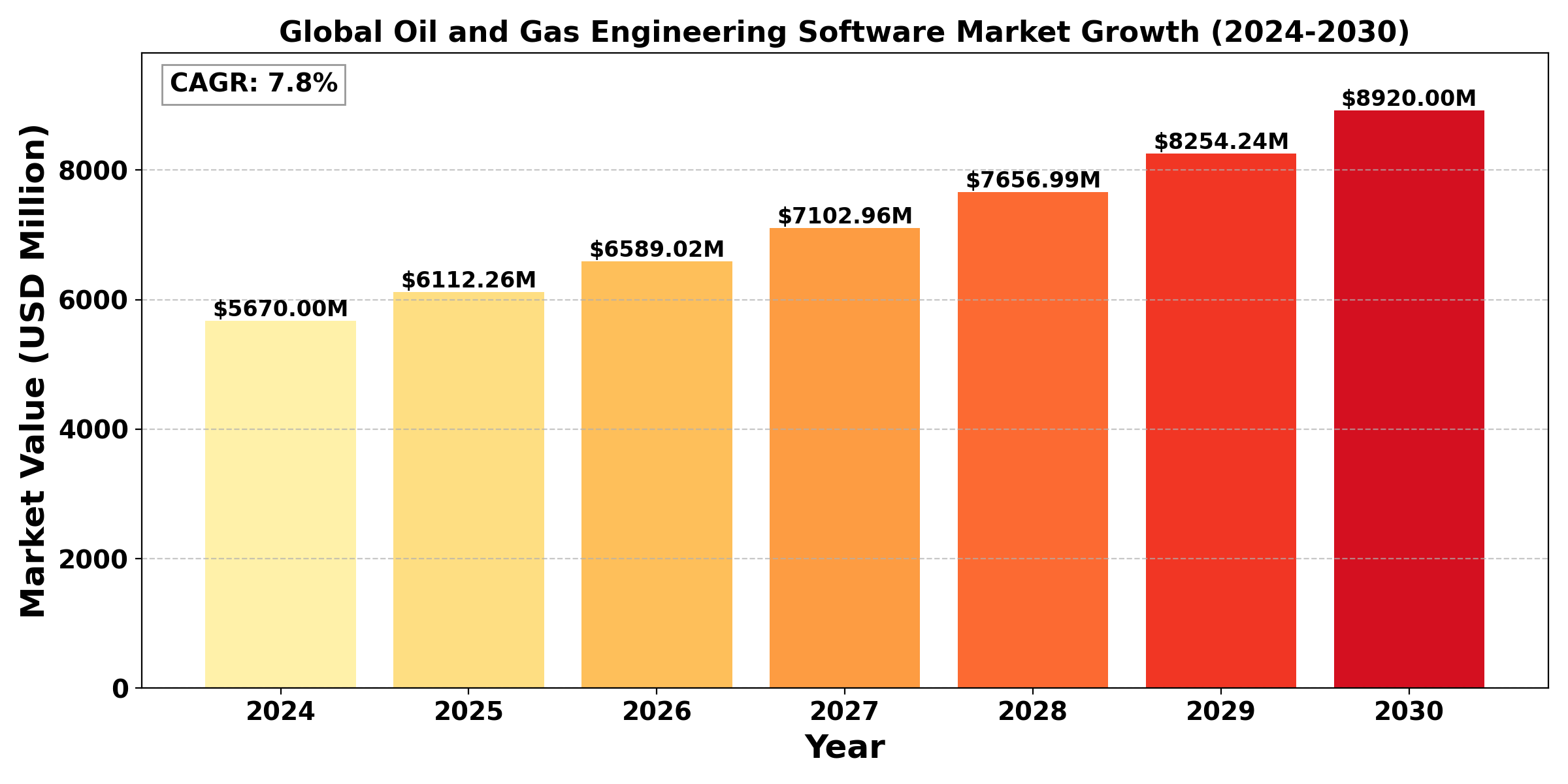TOP CATEGORY: Chemicals & Materials | Life Sciences | Banking & Finance | ICT Media
The "Global Oil and Gas Engineering Software Market" size was valued at US$ 5.67 billion in 2024 and is projected to reach US$ 8.92 billion by 2030, at a CAGR of 7.8% during the forecast period 2024-2030.
The "United States Oil and Gas Engineering Software Market" size was valued at US$ 1.89 billion in 2024 and is projected to reach US$ 2.89 billion by 2030, at a CAGR of 7.3% during the forecast period 2024-2030.
Oil and Gas Engineering Software provides specialized tools for designing, modeling, and analyzing oil and gas infrastructure and processes.
The global market is growing steadily, driven by industry digitalization. In 2023, total installations reached 250,000, with large energy companies accounting for 55% of demand. The mid-sized operators segment is growing at 8.5% annually. The market saw a 30% increase in demand for cloud-based solutions in 2023. Design software dominates with a 45% market share, while simulation tools are growing at 9% annually. North America leads with a 40% market share, while Middle East is the fastest-growing region at 8.8% CAGR. The industry is focusing on developing digital twin capabilities, with a 35% growth in R&D investments.

Report Overview
Oil and gas companies need engineering software to develop and deplete mineral deposits. Oil and gas engineering software is used after exploration has been performed and before production begins in order to best plan how to recover hydrocarbons at optimal cost and highest level of safety. This type of software is used by drilling, production, or reservoir engineers to estimate and simulate extraction processes. By using it, engineers help oil and gas decision makers to prioritize and implement production strategies.
Oil and Gas Engineering Software Market provides a deep insight into the global Oil and Gas Engineering Software market covering all its essential aspects. This ranges from a macro overview of the market to micro details of the market size, competitive landscape, development trend, niche market, key market drivers and challenges, SWOT analysis, value chain analysis, etc.
The analysis helps the reader to shape the competition within the industries and strategies for the competitive environment to enhance the potential profit. Furthermore, it provides a simple framework for evaluating and accessing the position of the business organization. The report structure also focuses on the competitive landscape of the Global Oil and Gas Engineering Software Market, Oil and Gas Engineering Software Market introduces in detail the market share, market performance, product situation, operation situation, etc. of the main players, which helps the readers in the industry to identify the main competitors and deeply understand the competition pattern of the market.
In a word, Oil and Gas Engineering Software Market is a must-read for industry players, investors, researchers, consultants, business strategists, and all those who have any kind of stake or are planning to foray into the Oil and Gas Engineering Software market in any manner.
Global Oil and Gas Engineering Software Market: Market Segmentation Analysis
The research report includes specific segments by region (country), manufacturers, Type, and Application. Market segmentation creates subsets of a market based on product type, end-user or application, Geographic, and other factors. By understanding the market segments, the decision-maker can leverage this targeting in the product, sales, and marketing strategies. Market segments can power your product development cycles by informing how you create product offerings for different segments.
Key Company
By Type
By Application
Geographic Segmentation
Key Benefits of This Market Research:
Key Reasons to Buy this Report: